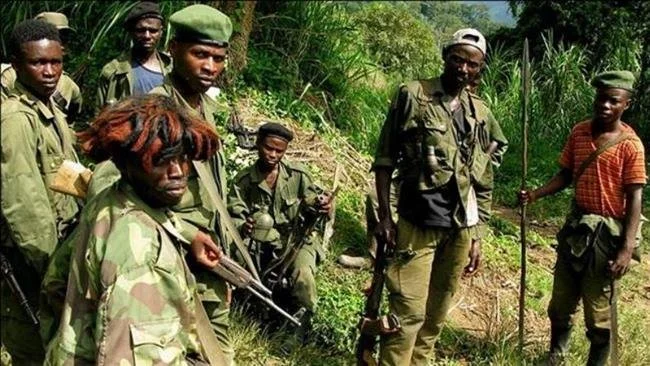New Savage FDLR Rapes of Congo Women Accompany US Reforms
/Bloody Escalation in Gang-Bang Rapes of Congo Women
At least 179 Congolese women were gang-raped by a mob of Hutu rebels during a weekend raid on a community of villages in eastern Congo. The events represent a new escalation of rape in the Congo, already considered the rape capital of the world.
Stefania Trassari, a spokeswoman for the United Nations Office for the Coordination of Humanitarian Affairs, said Sunday that the attacks represent a new escalation of violence in the area because of the large number of victims and the fact that they were simultaneously gang-raped. (via NYTimes)
On the evening of July 30 armed men entered the village of Ruvungi, in North Kivu province, telling the population not to worry about their presence. After dark another group of 200 to 400 men arrived and began to systematically rape the population.
Most women were raped by two to six men at a time in front of children and other family members. This further humiliation often accompanies rape in the Congo. According to Trassari, the numbers of rape victims are escalating, climbing to the latest total of 156. There is no reason to believe that more victims won’t come forward.
The FDLR, known as the Democratic Forces for the Liberation of Rwanda, which began as a gathering of fugitives of the Rwandan genocide in 1994, has grown into a resilient and savage killing machine and an economic engine in the region.
In investigating the role of ‘conflict minerals’ being used to finance gang rape in Africa and specifically in the Congo, The Guardian reports that the Obama administration and Congress included Section 1502 in the recent financial reform package.
Much of the sexual violence in the Congo is directly related to control of conflict minerals, where rape has become a war tactic.
US Government Enacts Reforms Around Congo’s Conflict Minerals
The newly adopted US financial reform law stipulates that any company doing business that involves minerals must disclose annually whether conflict materials originating in the DRC or an adjoining country were used in the process. This applies not only to electronics companies, but to all publicly traded US firms that use gold, cassiterite, tungsten or coltan in their products. Companies are required to exercise due diligence on the source and chain of custody of these materials, and measures to ensure oversight shall include an independent audit of the report. via The Guardian
US Secretary of State Hillary Clinton and USAID chief Rajiv Shah have 180 days to submit to Congress an analysis of the linkage between sexual violence, human rights abuses, and overall conflict in the region and US business’s procurement of minerals from the region.
Secretary Clinton will also produce a public “conflict minerals map” for Congress, showing all the major mineral-rich zones, trade routes and areas under control of armed commandos.
























































